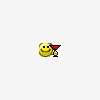-
Welcome to the eG Forums, a service of the eGullet Society for Culinary Arts & Letters. The Society is a 501(c)3 not-for-profit organization dedicated to the advancement of the culinary arts. These advertising-free forums are provided free of charge through donations from Society members. Anyone may read the forums, but to post you must create a free account.
from michael bauer's blog in the sf chron
-
Similar Content
-
- 1,370 replies
- 246,161 views
-
- 7 replies
- 1,219 views
-
- 1 reply
- 655 views
-
- 10 replies
- 638 views
-
- 15 replies
- 665 views
-
-
Recently Browsing 0 members
- No registered users viewing this page.







Recommended Posts